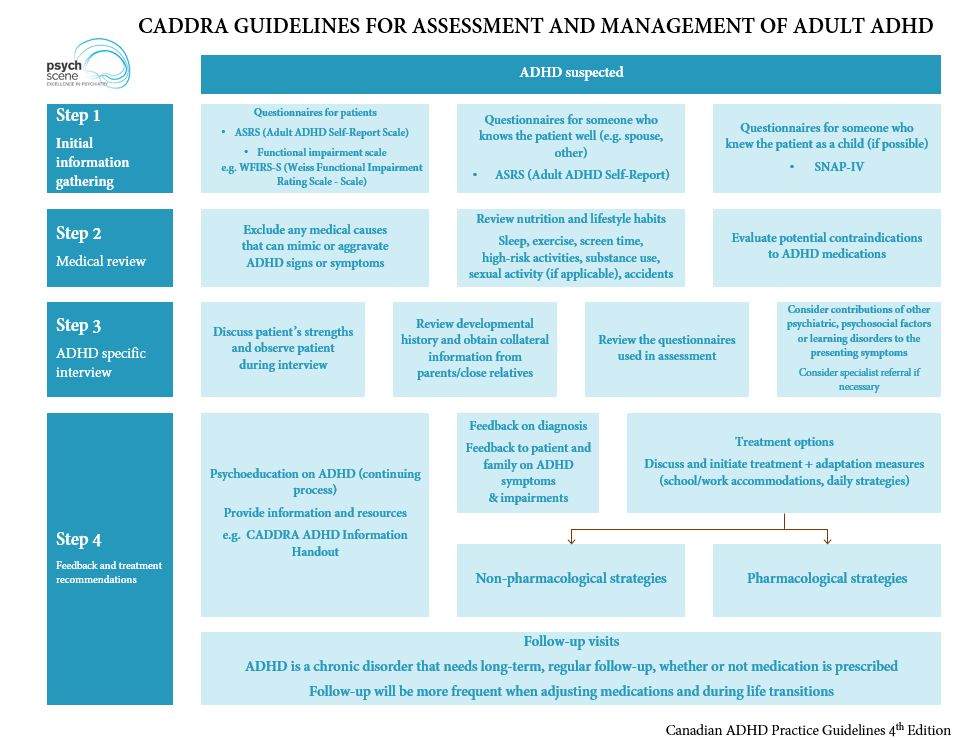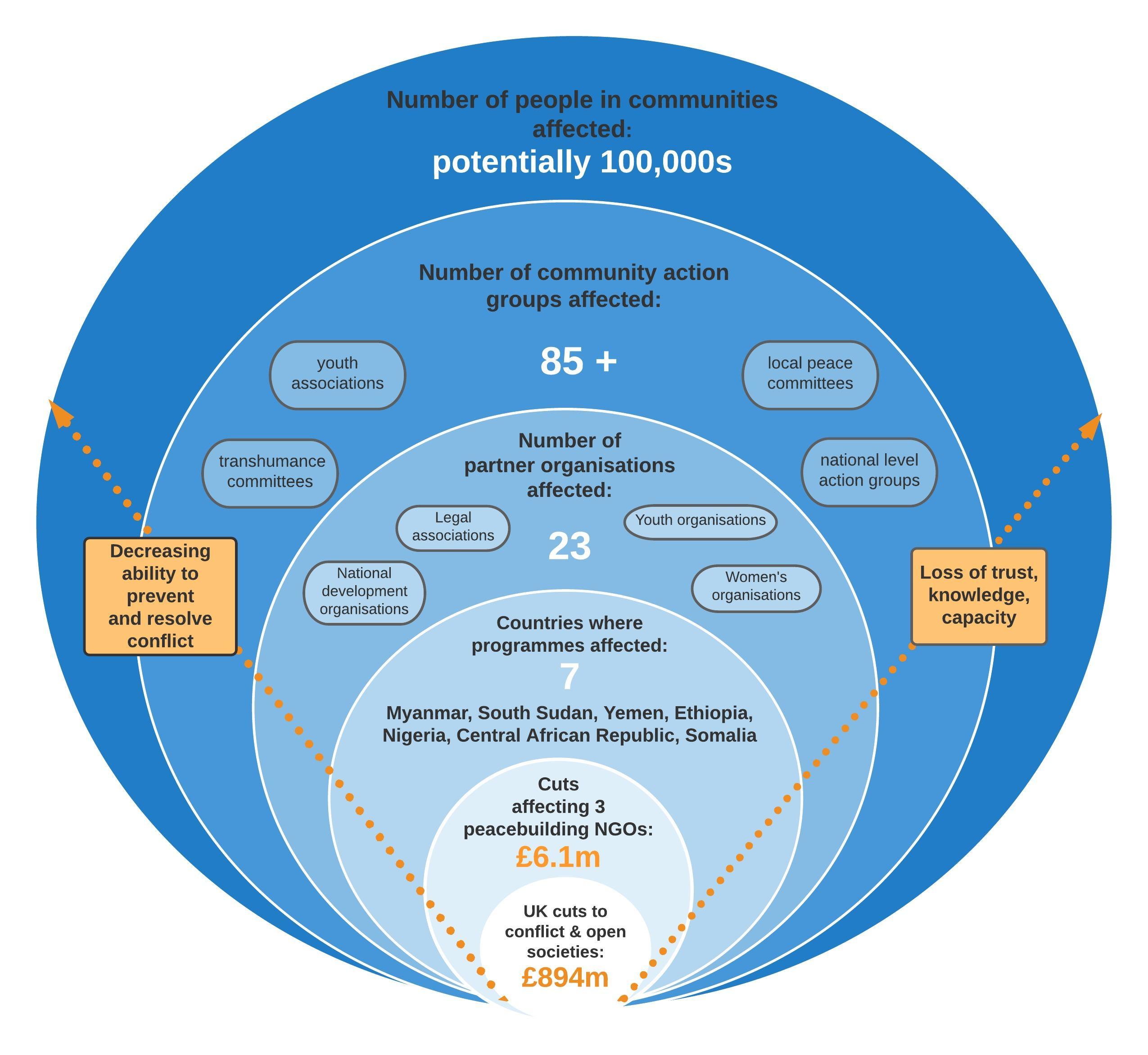Adult ADHD: Next Steps After A Suspected Diagnosis

Table of Contents
Seeking Professional Evaluation: Confirmation is Key
A proper diagnosis from a qualified professional is the cornerstone of managing adult ADHD. Self-diagnosing can be misleading, and a comprehensive evaluation ensures accurate identification of the condition and its specific presentation in your case. This crucial step allows for tailored treatment planning and opens the door to effective management strategies.
-
Types of assessments used: A thorough evaluation typically involves a combination of methods. These can include:
- Questionnaires: Standardized questionnaires like the Adult ADHD Self-Report Scale (ASRS) help assess the presence and severity of ADHD symptoms.
- Interviews: Structured clinical interviews allow healthcare professionals to delve deeper into your symptoms, their impact on your life, and your personal history.
- Neuropsychological testing: In some cases, neuropsychological testing may be recommended to further assess cognitive functioning and rule out other conditions.
-
Importance of a comprehensive evaluation: A comprehensive evaluation considers all aspects of ADHD, including inattention, hyperactivity, impulsivity, and their impact across various life domains. It also explores the presence of co-occurring conditions, such as anxiety or depression.
-
Finding qualified ADHD specialists: Locating a qualified professional experienced in diagnosing and treating adult ADHD is vital. Utilize resources such as:
- Your primary care physician for referrals.
- Online directories of mental health professionals specializing in ADHD.
- Websites of professional organizations dedicated to ADHD, such as CHADD (Children and Adults with Attention-Deficit/Hyperactivity Disorder).
-
Gathering relevant information before your appointment: Before your appointment, gather pertinent information including:
- A detailed account of your symptoms and their onset.
- Your medical history, including any previous diagnoses or treatments.
- A symptom log, documenting the frequency and intensity of your symptoms over time.
Understanding Your ADHD Diagnosis: Types and Severity
ADHD isn't a one-size-fits-all condition. Understanding the different subtypes and severity levels is vital for personalized treatment.
The primary subtypes include:
- Predominantly inattentive presentation: Characterized by difficulties with sustained attention, organization, and task completion.
- Predominantly hyperactive-impulsive presentation: Marked by excessive restlessness, impulsivity, and difficulty controlling behavior.
- Combined presentation: Individuals experience symptoms of both inattention and hyperactivity/impulsivity.
Severity levels range from mild to severe, impacting daily life to varying degrees. A higher severity level typically indicates a more significant impact on work, relationships, and overall well-being.
-
How the diagnosis impacts different areas of life: ADHD can affect various aspects of life, including:
- Work: Difficulty concentrating, poor time management, and organizational challenges.
- Relationships: Impulsivity, emotional dysregulation, and communication difficulties.
- Personal well-being: Low self-esteem, frustration, and increased risk of anxiety and depression.
-
Significance of understanding your specific ADHD presentation: Knowing your specific subtype and severity level allows your healthcare provider to tailor your treatment plan to your individual needs.
Differentiating ADHD from other conditions:
It's crucial to differentiate ADHD from other conditions that share similar symptoms, such as anxiety disorders, depression, and specific learning disabilities. A thorough differential diagnosis ensures you receive the most appropriate treatment.
Exploring Treatment Options for Adult ADHD
Managing adult ADHD often involves a multi-faceted approach. Treatment options are highly individualized and should be determined in consultation with a healthcare professional.
-
Medication management: Medication can significantly alleviate ADHD symptoms for many individuals. Options include:
- Stimulants: Increase dopamine and norepinephrine levels in the brain, improving focus and attention. (e.g., methylphenidate, amphetamine)
- Non-stimulants: Work differently than stimulants but also help improve focus and reduce impulsivity. (e.g., atomoxetine)
- Pros and cons: Each medication has its own set of potential benefits and side effects that need to be carefully considered.
-
Therapeutic interventions: Therapy plays a crucial role in developing coping mechanisms and strategies for managing ADHD symptoms. Effective approaches include:
- Cognitive Behavioral Therapy (CBT): Helps identify and change negative thought patterns and behaviors.
- ADHD Coaching: Provides personalized support and guidance in various life areas.
-
Lifestyle modifications: Lifestyle changes can complement medication and therapy, significantly impacting symptom management:
- Diet: A balanced diet can support brain function.
- Exercise: Regular physical activity can improve focus and reduce hyperactivity.
- Sleep hygiene: Prioritizing sufficient and quality sleep is essential for optimal brain function.
-
Importance of a personalized treatment plan: There is no one-size-fits-all approach to treating adult ADHD. Your healthcare provider will work with you to develop a personalized treatment plan tailored to your specific needs and preferences.
Building a Support Network and Seeking Ongoing Support
Managing ADHD is a lifelong journey, and having a strong support system is crucial.
-
Finding support groups or online communities: Connecting with others who understand your experiences can provide valuable emotional support and practical advice. Online forums and local support groups for adults with ADHD offer a sense of community and shared understanding.
-
Talking to family and friends about your diagnosis: Sharing your diagnosis with loved ones can foster understanding and help them better support you. Educate them about ADHD and how they can help you navigate challenges.
-
Seeking support from a therapist or coach: Ongoing support from a mental health professional can help you develop coping strategies, manage challenges, and maintain progress in your treatment plan.
-
Importance of regular check-ups: Regular follow-up appointments with your healthcare provider are essential for monitoring treatment effectiveness, adjusting medication as needed, and addressing any emerging concerns.
Conclusion
Receiving a suspected diagnosis of adult ADHD is a significant step. By following the steps outlined above—seeking professional evaluation, understanding your diagnosis, exploring treatment options, and building a support network—you can take control of your journey towards managing your ADHD effectively. Remember, seeking help is a sign of strength, not weakness. Take that next step and actively pursue a proper diagnosis and treatment plan for your Adult ADHD. Don't hesitate to reach out to a qualified professional to discuss your concerns and begin your personalized journey towards better management of your Adult ADHD symptoms.

Featured Posts
-
 Republican Revolt Will Trumps Tax Plan Face Defeat
Apr 29, 2025
Republican Revolt Will Trumps Tax Plan Face Defeat
Apr 29, 2025 -
 Willie Nelson Announces New Album Oh What A Beautiful World
Apr 29, 2025
Willie Nelson Announces New Album Oh What A Beautiful World
Apr 29, 2025 -
 Nyt Spelling Bee Answers For March 13 2025
Apr 29, 2025
Nyt Spelling Bee Answers For March 13 2025
Apr 29, 2025 -
 Tik Tok Adhd And The Dangers Of Self Diagnosis
Apr 29, 2025
Tik Tok Adhd And The Dangers Of Self Diagnosis
Apr 29, 2025 -
 Why Middle Managers Are Crucial For Company Success And Employee Well Being
Apr 29, 2025
Why Middle Managers Are Crucial For Company Success And Employee Well Being
Apr 29, 2025
Latest Posts
-
 The Ripple Effect Federal Funding Cuts And Their Consequences In Trump Country
Apr 30, 2025
The Ripple Effect Federal Funding Cuts And Their Consequences In Trump Country
Apr 30, 2025 -
 Tarykh Srf Rwatb Abryl 2025 Dlyl Shaml Llmwatnyn
Apr 30, 2025
Tarykh Srf Rwatb Abryl 2025 Dlyl Shaml Llmwatnyn
Apr 30, 2025 -
 Srf Rwatb Abryl 2025 Altwqytat Almtwqet Walajraeat Allazmt
Apr 30, 2025
Srf Rwatb Abryl 2025 Altwqytat Almtwqet Walajraeat Allazmt
Apr 30, 2025 -
 Mwed Srf Meashat Abryl 2025 Tfasyl Hamt Llmstfydyn
Apr 30, 2025
Mwed Srf Meashat Abryl 2025 Tfasyl Hamt Llmstfydyn
Apr 30, 2025 -
 Impact Of Federal Funding Cuts On Trump Supporting Communities
Apr 30, 2025
Impact Of Federal Funding Cuts On Trump Supporting Communities
Apr 30, 2025
